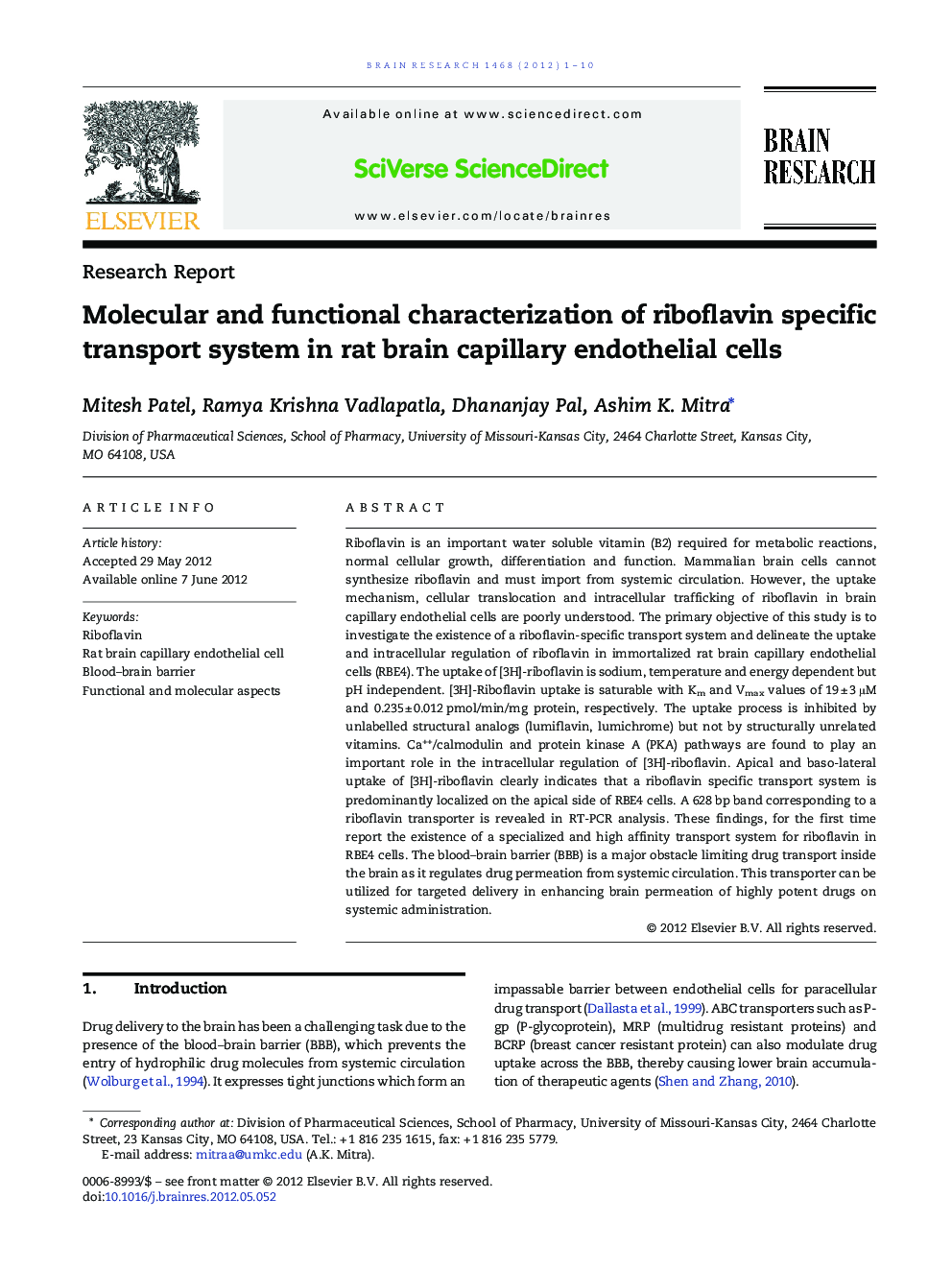| Article ID | Journal | Published Year | Pages | File Type |
|---|---|---|---|---|
| 4325156 | Brain Research | 2012 | 10 Pages |
Riboflavin is an important water soluble vitamin (B2) required for metabolic reactions, normal cellular growth, differentiation and function. Mammalian brain cells cannot synthesize riboflavin and must import from systemic circulation. However, the uptake mechanism, cellular translocation and intracellular trafficking of riboflavin in brain capillary endothelial cells are poorly understood. The primary objective of this study is to investigate the existence of a riboflavin-specific transport system and delineate the uptake and intracellular regulation of riboflavin in immortalized rat brain capillary endothelial cells (RBE4). The uptake of [3H]-riboflavin is sodium, temperature and energy dependent but pH independent. [3H]-Riboflavin uptake is saturable with Km and Vmax values of 19 ± 3 μM and 0.235 ± 0.012 pmol/min/mg protein, respectively. The uptake process is inhibited by unlabelled structural analogs (lumiflavin, lumichrome) but not by structurally unrelated vitamins. Ca++/calmodulin and protein kinase A (PKA) pathways are found to play an important role in the intracellular regulation of [3H]-riboflavin. Apical and baso-lateral uptake of [3H]-riboflavin clearly indicates that a riboflavin specific transport system is predominantly localized on the apical side of RBE4 cells. A 628 bp band corresponding to a riboflavin transporter is revealed in RT-PCR analysis. These findings, for the first time report the existence of a specialized and high affinity transport system for riboflavin in RBE4 cells. The blood–brain barrier (BBB) is a major obstacle limiting drug transport inside the brain as it regulates drug permeation from systemic circulation. This transporter can be utilized for targeted delivery in enhancing brain permeation of highly potent drugs on systemic administration.
Graphical abstractFigure optionsDownload full-size imageDownload high-quality image (97 K)Download as PowerPoint slideHighlights► Specialized and high affinity transport system for riboflavin in RBE4 cells. ► Functional and molecular characteristics of riboflavin transport system. ► Targeted drug delivery for enhancing brain permeation of therapeutic drugs. ► RBE4 cells may serve as an in vitro model for screening riboflavin conjugated drugs.
